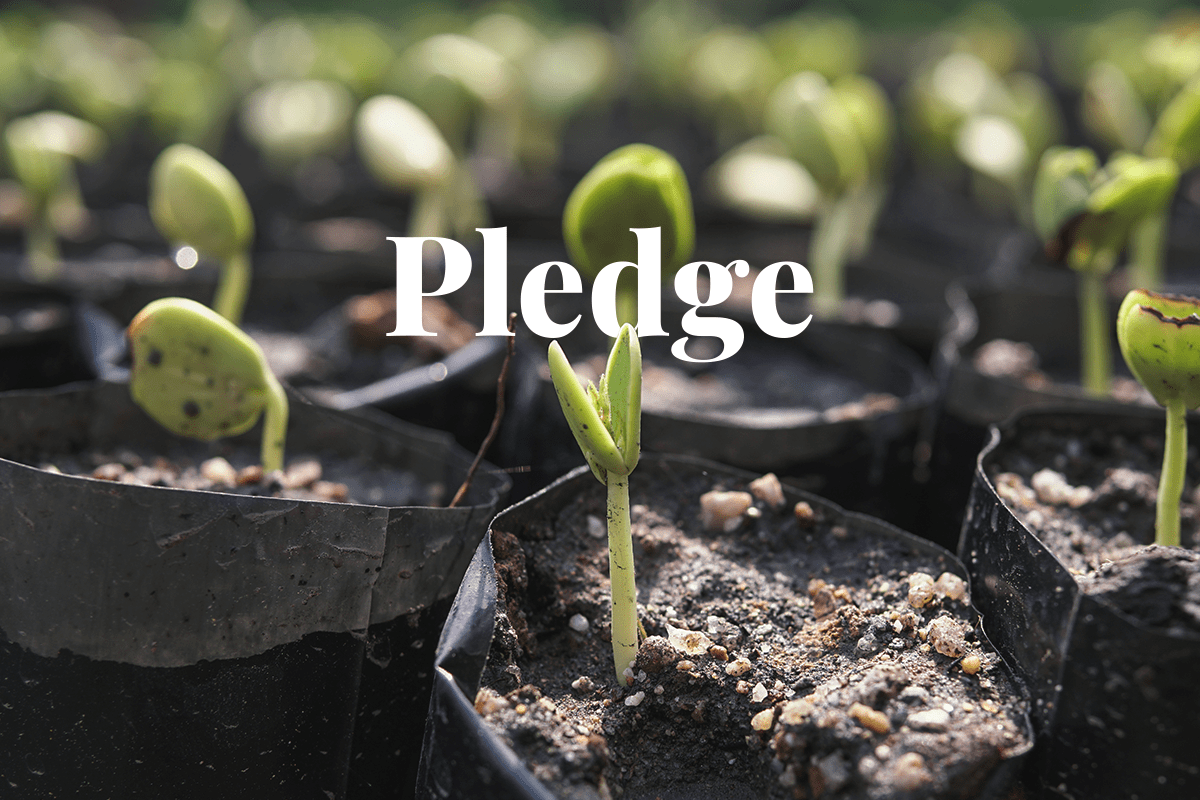The Swedish fintech company Klarna has revealed its latest climate commitment, pledging $2.35 million to support more than 20 carbon removal organisations this year. The funds for this contribution come from Klarna's internal carbon tax income, marking the third time the company has taken this initiative since 2021. With this recent commitment, Klarna's total contribution to climate efforts now exceeds $5 million.
 Young growing plant in a tree nursery.
Young growing plant in a tree nursery.
Salah Said, Head of Sustainability at Klarna, emphasised the company's dedication to supporting impactful organisations as catalysts for change. Klarna aims to drive carbon dioxide removal from the atmosphere, contribute to nature protection and restoration, advance decarbonisation, and advocate for a sustainable future.
As the first fintech company to join The Climate Pledge and the Race to Zero campaign, Klarna is at the forefront of sustainable practices. Through its internal carbon tax programme, the company aims to achieve long-term climate impact by supporting various climate projects and making a substantial difference by 2030.
Read more: The role of carbon credits in business: benefits, challenges, and future outlook
Klarna's climate initiative operates under the Climate Transformation Fund in partnership with Milkywire, a planet health platform. The fund, designed to go beyond offsetting, supports projects in biomass, rock, ocean, and direct air capture, all crucial areas for tackling the climate crisis.
To further its commitment to global net-zero goals, Klarna implemented an internal carbon tax, allocating funds to the Climate Transformation Fund. It charges its own emissions based on different scopes: $100/metric tonne for Scope 1 and Scope 2 emissions, including travel emissions, and $10/metric tonne for the remaining Scope 3 emissions.
Read more: World Bank report highlights carbon pricing's role in climate solutions
Last year, Klarna's internal carbon tax income supported 16 climate projects. In 2023, it will fund over 20 initiatives, ranging from nature-based solutions to carbon removal projects. Among the companies Klarna will support this year are Carbon Capture Scotland, Takachar, TerraFixing, Inplanet, and SeaO2, along with existing partners such as Husk, InterEarth, and Silicate. Additionally, new partners, including Octavia Carbon, Parallel Carbon, and Mission Zero Technologies, will receive funding from Klarna.
Besides funding carbon removal and climate initiatives, Klarna has made significant strides in reducing its own carbon footprint. In 2022, the payment network achieved a nearly 4% reduction in carbon emissions compared to the previous year. Klarna's ongoing efforts include continuous improvements in cutting emissions from Scope 1 and Scope 2, as well as operating all its offices on 100% renewable energy.
Klarna has set ambitious net-zero goals aligned with the Paris Agreement. It aims to reduce its carbon-intensity-based emissions by 50% by 2030 and achieve net-zero operations by 2040, a decade ahead of the global target. By supporting and entering pre-purchase agreements with carbon removal partners, Klarna is actively contributing to the growth of the emerging carbon removal industry and accelerating the adoption of climate solutions.
Measure your carbon impact
With its proactive approach to sustainability and partnerships with carbon removal organisations, Klarna is positioning itself as a leader in the fight for a more sustainable future. As the global community continues to grapple with climatic challenges, Klarna's efforts inspire other companies to prioritise sustainability and take concrete actions to combat the environmental crisis. Collaborating with diverse organisations and investing in climate solutions, Klarna demonstrates its commitment to making a tangible and lasting impact on the planet.
DGB Group applauds initiatives that drive the quest for a greener tomorrow and, even more so, those that put collaboration at their core. The decarbonisation mission is global and complex and can be achieved only through collaboration between sectors and public and private entities. DGB has established a strong history of creating carbon projects that benefit various stakeholders, such as landowners, local communities, private companies, government agencies, and non-governmental organisations.
Our team of experienced professionals specialises in designing, overseeing, and scaling carbon projects that deliver tangible and lasting results. Our carbon projects not only contribute to environmental wellbeing but also generate a reliable source of income for landowners through generating high-quality carbon credits. By prioritising quality and sustainability, DGB empowers landowners and ensures that our carbon projects create meaningful benefits for all parties involved.
Contact our experts to take action for nature



